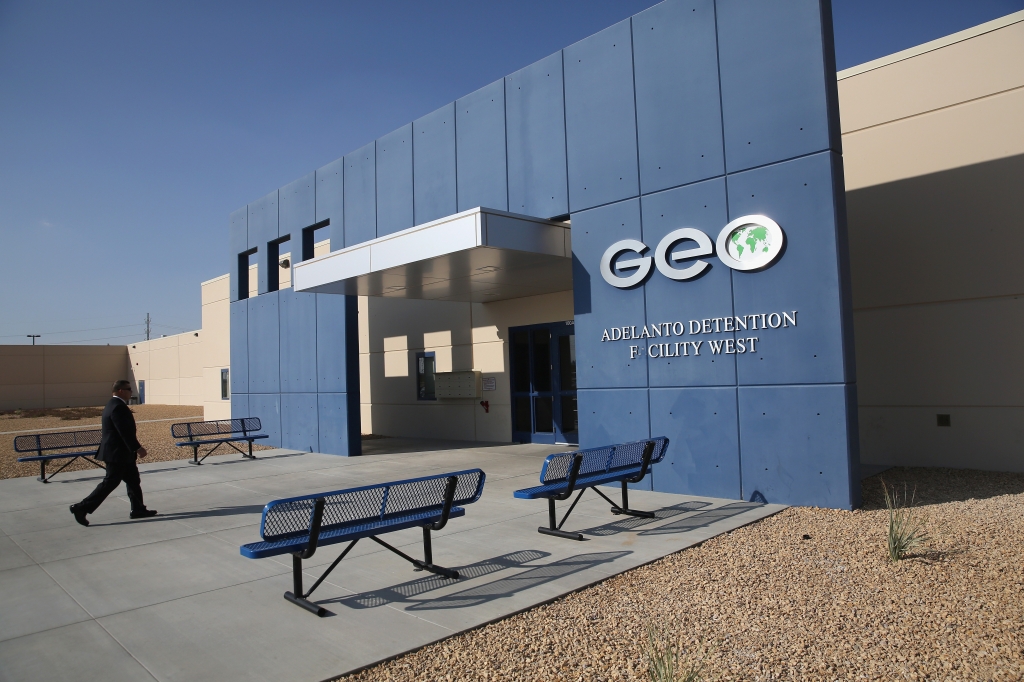-
Tips for becoming a good boxer - November 6, 2020
-
7 expert tips for making your hens night a memorable one - November 6, 2020
-
5 reasons to host your Christmas party on a cruise boat - November 6, 2020
-
What to do when you’re charged with a crime - November 6, 2020
-
Should you get one or multiple dogs? Here’s all you need to know - November 3, 2020
-
A Guide: How to Build Your Very Own Magic Mirror - February 14, 2019
-
Our Top Inspirational Baseball Stars - November 24, 2018
-
Five Tech Tools That Will Help You Turn Your Blog into a Business - November 24, 2018
-
How to Indulge on Vacation without Expanding Your Waist - November 9, 2018
-
5 Strategies for Businesses to Appeal to Today’s Increasingly Mobile-Crazed Customers - November 9, 2018
US to phase out federal use of privately-operated prisons
Two of the largest for-profit jailers, Corrections Corporation of America and GEO Group lost more than 35 percent of their value Thursday after the Department of Justice chose to phase out its use of private prisons, just days after the U.S. Justice Department’s Inspector General reportedly found that for-profit prisons “incurred more safety and security incidents per capita than comparable BOP institutions”.
Advertisement
According to Yates’ memo, the Bureau of Prisons’ use of private facilities owes to an 800% increase in the federal prison population between 1980 and 2013.
The DOJ has instructed the Federal BOP to decline to renew contracts with these private facilities as they reach the end of their terms or reduce the contract in a manner consistent with the law.
Yates said the federal prison population has begun to decline for the first time in decades, thanks to efforts to “recalibrate federal sentencing policy”.
When the U.S. Bureau of Prisons nonrenewed its contract to house some 1,400 inmates at NEOCC as of May 31, 2015, that left only about 580 U.S. Marshals Service inmates there and resulted in the layoff of 103 NEOCC employees. She said the agency has about 195,000 inmates in bureau and private prisons down from a high in 2013 of approximately 220,000.
Hammering corrections company share prices, the department said it planned to gradually reduce the use of private prisons by letting contracts expire or by scaling them back to a level consistent with the declining prison population, a move that would reverse a practice begun nearly 20 years ago.
Citing unsafe, ineffective correctional services, the Justice Department plans to stop using private prisons.
The private prisons are operated by three private companies – Corrections Corporation of America, GEO Group Inc., and Management and Training Corp. The news from the DOJ was unexpected and came in the form of a memo from Justice Department Deputy Attorney General Sally Yates. The report assessed the performance of 14 privately contracted prisons compared to an equal number of government-run prisons with similar populations.
The most recent ICE detainee figures, supplied by spokeswoman Jennifer Elzea, indicate an average daily population of 33,676 as of early August, about 73 percent of whom (24,567) are housed in privately operated facilities. However, Schwarz said, Congress has funded a minimum of 34,000 beds a day for immigration detention, and 62 percent are in facilities run by private contractors.
Yates said the goal of the Justice Department was to ensure “consistency in safety, security and rehabilitation services by operating its own prison facilities”.
Advertisement
But don’t make the mistake of thinking the announcement spells the end of the billion-dollar business that is the private prison industry. The policy change only impacts facilities under the purview of the Bureau of Prisons.




























